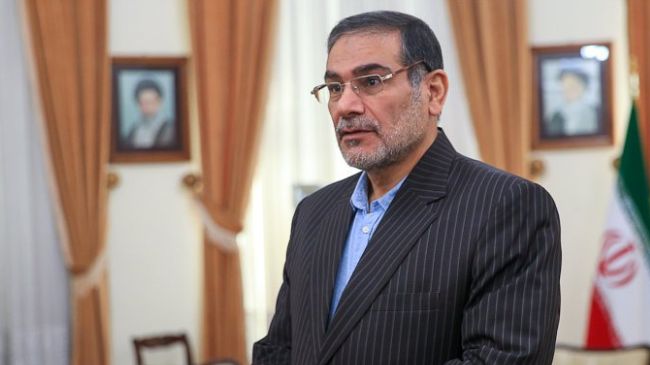Secretary of Iran’s Supreme National Security Council (SNSC) has emphasized that any nuclear deal between Tehran and world powers should have the whole “cruel sanctions” imposed on Iran removed.
The full abolition of cruel anti-Iran sanctions and Tehran’s entitlement to the whole legal rights within the framework of the nuclear Non-Proliferation Treaty (NPT) should be stipulated at any nuclear agreement, Ali Shamkhani said of a long-awaited nuclear deal between Iran and the sextet of world powers.
He made the remarks in a meeting with Meng Jianzhu, a member of the Central Committee of the Communist Party of China, in Tehran on Sunday evening.
“In case the other side takes a logical, non-political approach on the basis of realities, reaching an agreement in the nuclear talks will be possible immediately,” Shamkhani added.
The senior official also made it clear that “internal problems” among P5+1 members or the “excessive demands” will have no bearing on the resolve of the Iranian team of negotiators in the course of talks.
The Chinese politician, for his part, reaffirmed Beijing’s support for Iran’s civilian nuclear program, and stressed, “Iran has the right to enjoy peaceful nuclear energy, and we will definitely support Iran in the 5+1 talks.”
Iran and P5+1 (Russia, China, the US, Britain, France and Germany) are in talks to hammer out a final deal to end a decade of impasse over Tehran’s peaceful nuclear energy program.
On November 24, 2013, Iran P5+1 signed an interim nuclear deal in the Swiss city of Geneva. Based on the interim deal, the world powers agreed to suspend some non-essential sanctions and impose no new nuclear-related bans in return for Tehran’s decision to freeze parts of its nuclear activities.
The Geneva deal (the Joint Plan of Action) came into effect in January and expired in July, when the parties decided to extend negotiations until November 24 in the hope of clinching a final deal that would end a decade of impasse over Tehran’s peaceful nuclear energy program.
In July, Tehran and the six countries agreed to extend negotiations until November 24 in the hope of striking a final deal.
